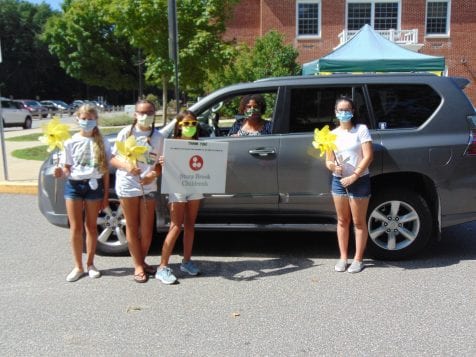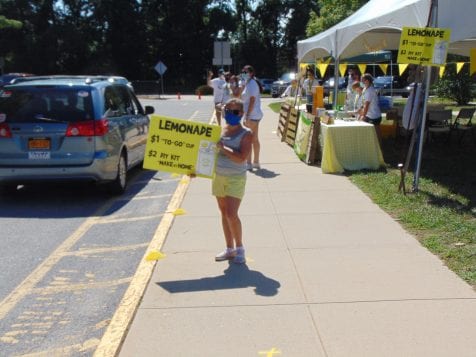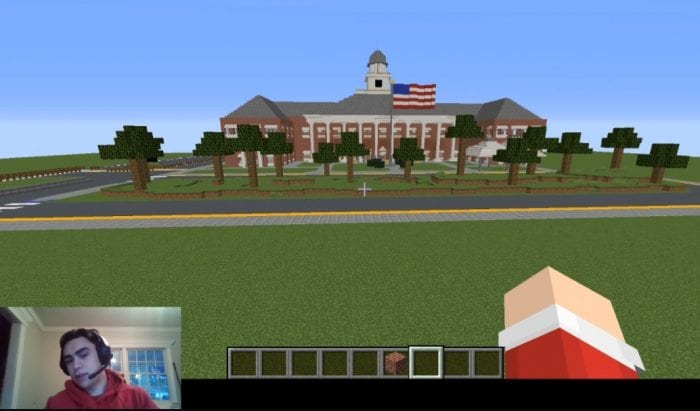With state guidelines mandating that events be kept to a reduced capacity or postponed due to the pandemic, the organizers of the Three Village Kids Lemonade Stand, Maddie and Joseph Mastriano, knew they would have to go about things differently this year.
For the eighth year in a row, the lemonade stand will raise money for the Stony Brook Children’s Hospital Child Life Program. However, this year there will be two events in one day.
Maddie Mastriano said she and her brother were hoping not to break their streak in having their annual lemonade stand.
“While it won’t be the same, we know this year more than ever finding a way to give back to our community is important,” Mastriano said. “COVID may have changed many things that we were used to doing, but we felt it very important to keep this summer tradition going. We made sure to take extra precautions in planning this time too, which is why we have two events planned on the same day. We really wanted to offer everyone an option to participate in a way they felt most comfortable doing so.”
A drive-through lemonade stand will take place at R.C. Murphy Junior High School Aug. 3 from 3 to 6 p.m. Mastriano said there will be a reduced number of volunteers this year and all of them will be wearing masks and gloves. Attendees will be required to stay in their cars, and tents will be staggered through the school’s bus circle.
The drive-through event will include prepackaged lemonade to go, do-it-yourself lemonade kits, raffles, sandwiches for sale by Chick-fil-A and a merchandise tent.
From 7:30 to 9:30 p.m. the same day, the young people will host a live virtual fundraiser on the streaming platform Twitch. During the virtual event, the raffle winners will be announced, and there will be an opportunity to donate directly to the GoFundMe page. District Lemonheads, which is the Three Village school that raises the most money for the cause, will also be announced.
Mastriano said they hope to have picture in picture during the stream, as they plan to be live on camera, air slideshows of past events and sponsor logos, as well as allow people to play along on a Minecraft server built by Joseph Mastriano and his friends. The Minecraft world will include a virtual lemonade stand that features the junior high school and game for participants to play.
Last year more than 500 attended the event at Murphy to buy 50-cent cups of lemonade, other treats and merchandise. Attendees played games, School of Rock students performed, and Stony Brook University athletes stopped by to visit. Sales from the 2019 lemonade stand exceeded the goal of $40,000 by the end of the day.
This year’s goal is $50,000 and nearly $6,000 has already been raised through the GoFundMe page.
The Three Village Kids Lemonade Stand username on Twitch is @3villagekidslemonadestand. R.C. Murphy Junior High School is located at 351 Oxhead Road, Stony Brook.
For more information, visit www.threevillagekidslemonadestand.com.























